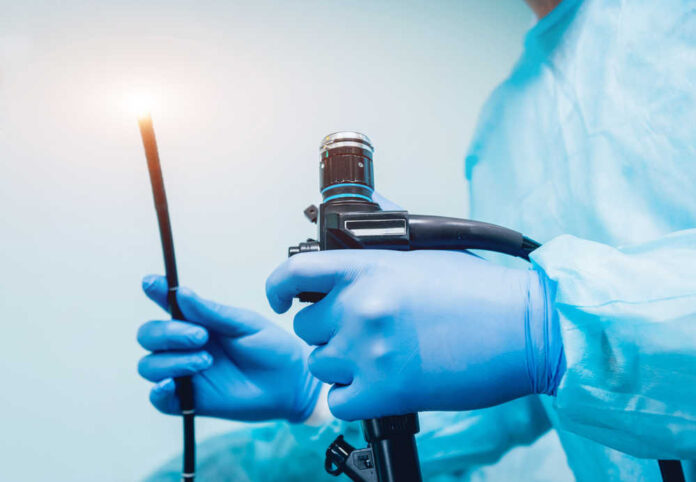
A colonoscopy is a medical procedure that can help detect and treat problems in the large intestine (your colon).
During a colonoscopy, a doctor inserts a camera attached to a thin, flexible tube into your rectum and moves it through your large intestine.
This allows them to look for problems such as ulcers, swelling, bleeding, polyps, or cancerous growths.
A colonoscopy can also be used to take biopsies (samples of tissue) or remove polyps.
Are Colonoscopies Dangerous?
Colonoscopies are a very common procedure, and complications are relatively rare.
However, as with any medical procedure, colonoscopies have some risks.
The most common complication is bleeding from the site where a biopsy or polyp was taken. This usually isn’t serious and usually stops on its own.
Other potential complications include:
- perforation (a small tear) in the intestine
- infection
- reaction to anesthesia
- post-polypectomy electrocoagulation syndrome (very rare)
After the procedure, you may also experience bloating, gassiness, nausea, or minor abdominal pain.
These side effects are usually mild, temporary, and should go away within a day or so.
Are Colonoscopies Worth The Risk?
Overall, the risks associated with colonoscopies are very low.
The risks of not having a colonoscopy are much higher.
Colorectal cancer is the third most common cancer in the US and the second leading cause of cancer death. Approximately 1 in 24 Americans will be diagnosed with colorectal cancer in their lifetime.
Colonoscopies are the most effective way to detect and remove polyps before they become cancerous growths. They also help diagnose colorectal cancer early, when it is most treatable.
If you are unsure whether or not you should have a colonoscopy, talk to your doctor. They will be able to help you weigh the risks and benefits based on your situation.
When Should You Get A Colonoscopy?
The US Preventive Services Task Force, the CDC, and many other health organizations recommend that adults aged 45-75 get a colonoscopy every ten years.
If you have a family history of colorectal cancer or other risk factors, you may need to get a colonoscopy sooner or more often.
Even if you don’t have any symptoms, getting screened for colorectal cancer is important. In many cases, there are no noticeable symptoms in the early stages of the disease.
Talk to your primary doctor about when you should get a colonoscopy. They can give you specific recommendations based on your age, family history, and other risk factors.






















